By teens, for teens



Sharing some of your most chilling tales!

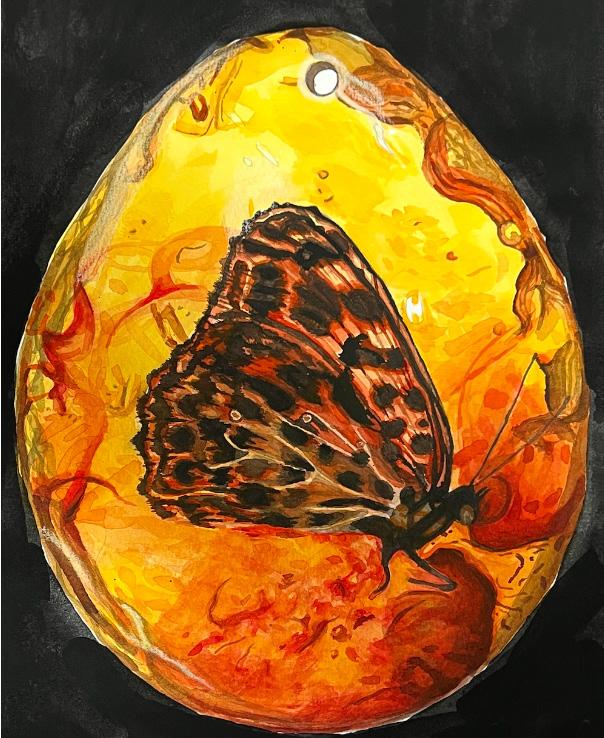




Teen Ink is thrilled to share that this month's issue is all about Spooky Fiction! Just in time for Halloween, we're also announcing the winners of our Halloween Writing Contest, judged by YA horror author Jeff Strand, and our One-Sentence Horror Story contest. Thank you to everyone who entered; your submissions were electrifying!
This issue also includes a big feature on STEM! Science, technology, engineering, and math are all around us, from our favorite devices to the recipes we use. Without STEM, we wouldn't have much of the stuff we enjoy today, so we've dedicated a whole section to show our appreciation!
We're also excited to announce the winners of our Review Blitz and Pet Pics contests! Your pets are as cute as ever, and our editors had a blast seeing all their adorable poses!
We hope you enjoy this issue just as much as we do, and remember, we welcome your feedback! If you want to write a letter to an editor or respond to an opinion article, visit teenink.com/submit!
Best regards,
The Teen Ink Team

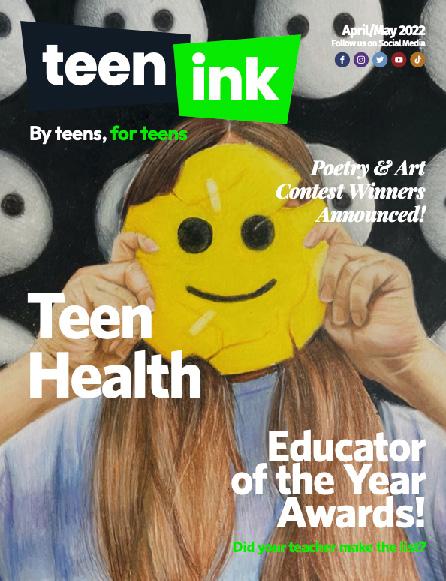
Submit your photo or artwork for a chance to appear on the cover of Teen Ink magazine! All art and photo submissions are eligble.

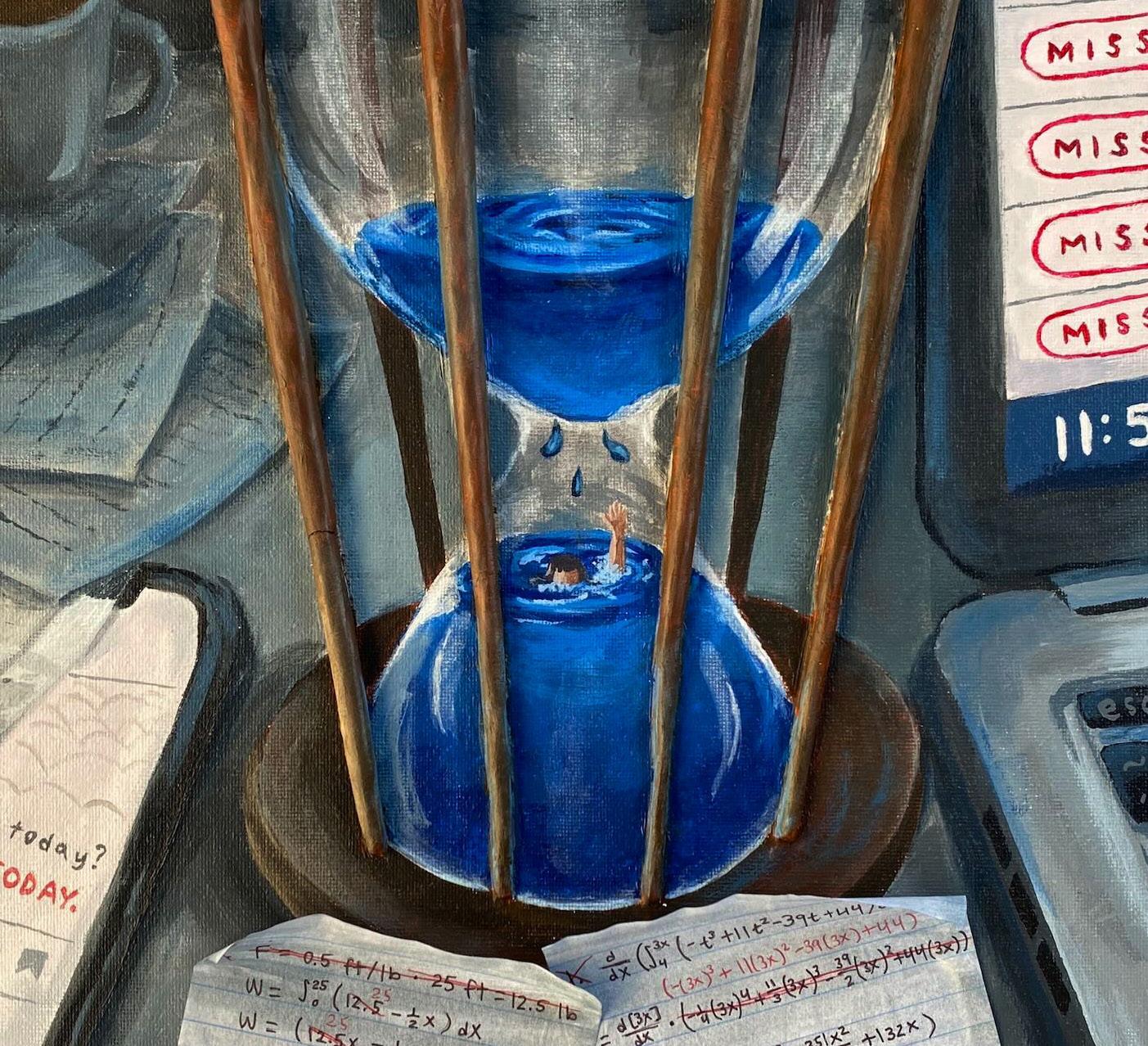
The streets are lively, like they had always been on nights like this. The couple walking across the road, the old lady walking her dog, they were a simple breath of fresh air for me. I had decided to stop by a pub, it was just down the street from here, not too far away. Along the way, I can’t help but notice a man next to a car struggling to start his engine. Being the gentleman I am, I offer my assistance, but he declines with a rather hearty tone. I presume he is just stressed and I continue to the pub like I had planned.
Along the way, I see a woman, rather pretty might I add, looking through a window to the bakery. She seemed to be ogling the pastries in the front window. Part of me wants to talk to her, but I feel as though I
would ruin her enjoyment, so I continue to the pub like I had planned.
Along the way, I find that my usual path is blocked by yellow tape. I presume something must have happened here, but I haven't a clue what transpired. It seems that a pole had been taken down from a car accident; there must have been a careless driver on the streets this evening. Although, it has nothing to do with me, so I take a detour and continue to the pub like I had planned.
Along the way, I noticed the police, interviewing a pedestrian. I hope that nothing terrible has happened. Although, to my eyes, it looks like an
ARTICLE BY TITAN SANCHEZ, PALM BAY, FL
accident, I could always be wrong, in fact, I am wrong quite often. But that’s besides the point; I must continue to the pub like I had planned, or else I might get distracted and wander off.
Along the way, I found some brilliant looking tomatoes in the market! How fine they looked this evening! So fine, in fact, I couldn’t stop myself from purchasing a few for later. If the tomatoes are so fresh, I must look at the other stalls for some once in a lifetime deals of fine produce! So, I walked to the other stalls like I had planned.
Along the way, I see another pedestrian being interviewed by the authorities, this time they were a vendor for one of the stalls. I was curious to see what they could possibly be talking about, so I wandered to the premise, not to bring attention to myself so as to not cause a disturbance.
Along the way, I overheard the vendor talking about a car accident in the street just down the block! How wild is that! It also happens to be where my favorite pub is. I hope the pub isn’t involved in the accident. Just then, the vendor locks eyes with me, so I give him a friendly smile. But just then, he looks at me all horrified and points his finger in my direction. He’s screaming ‘That’s him! He's the guy!’ and all.
Now of course I’m shocked, I’ve never done anything to warrant the police arresting me, but that's exactly what happened next! I was trying to tell the officer that he had the wrong guy, but he wouldn’t let off! He dragged me to the car and, after a while of pulling and tugging, he finally humored my request to plead.
I told him I was just out walking, and that's all I ever did. He then asks what I was out and about for, and I told him that I always take a walk just cause, you know; I happened to really like walking after all. And he asks where I was just a few minutes ago, and that's where I get a little confused.
I told him I was just in my apartment and decided to take a walk, that's all. Then he says something crazy, he says I caused a car accident on the road just a block down the street! Now of course I have never heard of this accident before, so you can tell why I’d be so surprised. But when I told this guy that I didn’t know about this accident, he told me that he knew I came from that road.
And of course I don’t remember ever coming from
there so I told him so, but he insists that I did because I bought tomatoes from the vendor down the street. And he even pointed to some stall at the edge of the market, at some intersection, but I don’t ever remember even speaking to that guy. But this is the craziest part. The man points to my hand, and in my hand is a bag.
You must understand how crazy this sounds when I tell you that, to my surprise might I add, that there were tomatoes in this bag that I was holding; rather fresh ones too, might I also add. But that's besides the point. Regarding the rather delectable tomatoes I possess, it made no sense why they were in my possession in the first place. I have an allergy to nightshade plants; so after all, I can’t even eat tomatoes! Once I told him that, he squinted and looked all confused and what not.
‘You just purchased those, did you not?’
Now of course I ask him why he thinks that, and he tells me that the only stall that sells tomatoes was the one just down the street.
I don’t get it.
I tell him I have no idea what he’s talking about, but next thing you know, I’m in the officer's vehicle! I squirm around but it's no use, he had slipped some restraints on while I wasn’t paying attention. As I’m sitting there, I ponder, why am I being arrested? I don’t even remember the charge, and when I ask him what’s wrong, he just laughs and continues driving.
“Where are you taking me, sir?” I ask him.
“Well of course I’m taking you to the department. I’ll be asking you some questions about what happened earlier.” He responded.
Earlier?
But I was at home just a few minutes ago, so I mustn't be too far from my home now. The car ride was long, and I grew sleepy.
***
Along the way, I catch a glance of a woman, rather pretty might I add, speaking to a man with a broken down car. Although I couldn’t get much of a glance, it looked as though she was offering him some sort of pastry. Part of me wishes I could have talked to her; too bad I never got the chance…

I wake up to a crash coming from the depths of the living room. I shake my husband awake. He's resistant to even opening his eyes. I shake him with more force this time but to no avail. When I speak, the alertness in my voice convinces him to go check. He sits up on his side of the bed, sighing his annoyed sigh. He reaches for the bat he keeps under our bed and walks out of the bedroom.
I lay awake in bed now. I dart my eyes around the room, and my breathing becomes heavier, but I attempt to cease it. My anxious mind starts to flood with all the possibilities of what might await in our living room. My heart is pounding in my chest, and my mind is racing. I am stuck, paralyzed, unable to move anything except my darting eyes, which carefully watch the door, then, swiftly look to the wall beside me, a window, maybe one to jump out of. I can't hear what's going on outside the door; if anything, the ringing in my ears drowns out any sound that could be coming from the living room. Suddenly, I hear raucous footsteps coming towards the bedroom. Soon, followed by the slow creaking of the door.
"It's gone now."
His voice was raspier than usual as he spoke. I nodded and laid back down. I pulled the comforter around my quivering body. I was unsure if it was from the cold or the fear I had just succumbed to. He got in bed with me too, laying down and taking what little of the comforter I had left for him. He wrapped his arms around me and pulled me closer to him. His presence is comforting but doesn't fully ease the unruliness within me. My body has gone limp now, but my mind is far from tranquil. I know I'm safe now, or at least, I think I am, I should be. That's what my husband would never do: reassure me everything was going to be alright. I peeked my head towards the digital clock on the nightstand, seeing the time read "3:47." I sighed in frustration, knowing I'd have to get up for work soon within the next three hours; I really didn't need to lose any more sleep. As I try to drift back into sleep, I feel his hands reach for my hair. He runs his lengthy finger through several strands in an attempt to soothe me. I do feel safe knowing he's beside me, but something still isn't right. The bedroom is so dark, the blackout curtains not allowing even the slightest amount of light to peer through. What if the intruder was still there, lurking in the shadows? Was he really sure it was gone?
"I know you're awake, Honey."
He whispers in my ear, causing my eyes to open once again. He knows me well enough to know I can't possibly be sleeping. I know he can sense my fear; he's always had a sixth sense for these kinds of things. I don't turn to face him; I stay where I am.
"You killed him, right?" And without hesitation, the creature replies, "Of course."
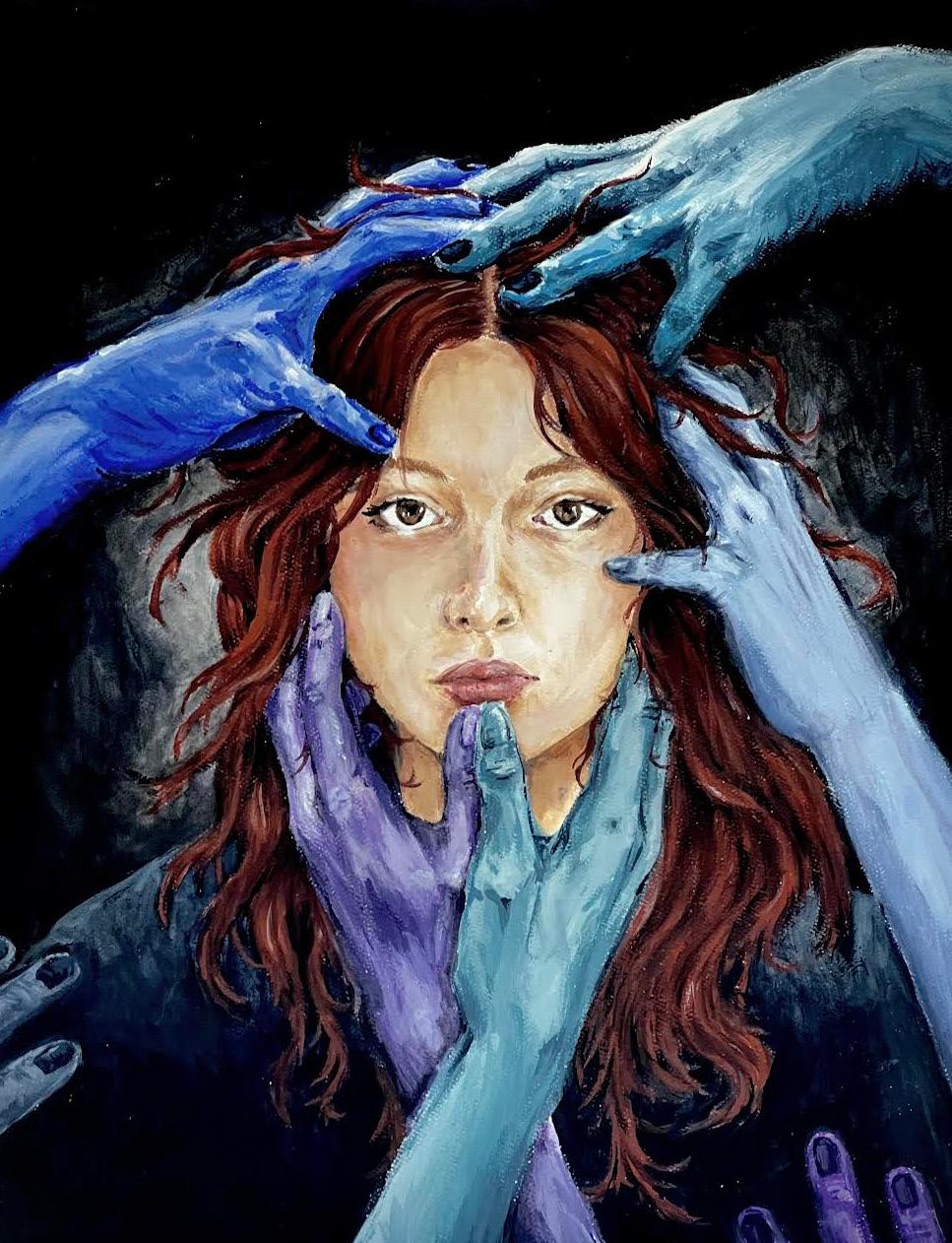
“Hailey, I just want the truth,” he said.
My eyes linger too long on his. My entire body feels heavy. I look down, fidgeting with my hands, trying to appear natural. It comes out forced.
“I want to make it clear—you’re not in trouble, Hailey. I just want to understand. What happened that night?”
I stay silent. After two minutes, he clears his throat. I glance up; he looks tired. Relief washes over me. Does this mean I can go home now?
“Hailey, I’m not asking for too much. I know the last few years have been tough on you. What happened wasn’t your fault. Whatever guilt you’ve been carrying, trust me, it has no place here. But what happened last night is crucial. Please, tell me.”
I can’t tell him. They always say that—"Trust us. You’re not in trouble. We just want to talk.” But I know the truth. If I tell, I’ll be sent to a mental asylum if I’m lucky—or worse, a jail cell. I can’t change what I’ve done. It’s only a matter of time, and I’m trying to save as much as I can.
“Hailey,” he said, his voice softer.
I purse my lips. He shuffles the documents, ready to stand. “I did it,” I blurt out.
He freezes, his eyes shifting from pity to something else—fear? Disgust? He exhales, jotting something down, then looks me dead in the eye. He seems about to speak but doesn’t. I don’t blame him.
He rises from the chair, a strange noise echoing in the room—like a distant whisper, though we’re alone. The room feels colder, the walls closer. He turns back to me, expression unreadable.
“Hailey, stay here. I’ll be right back.”
He leaves, the door clicking shut. The light flickers, casting long shadows that dance across the walls. A chill runs down my spine.
The door creaks open again. A young woman in a uniform steps in, her face pale, expressionless. She stares at me with empty eyes.
“What… what do you want?” I stammer, but she doesn’t respond. Instead, she steps aside, revealing another figure behind her—me. Or something that looks like me.
Same bun, same glasses, but her eyes are hollow, her skin drained of color.
“I did it,” she says, her voice mirroring mine. “And now it’s your turn.”
She steps forward, her hand reaching out. I try to move, but my body won’t respond. I’m frozen in place.
“You’ve been trying to save time, Hailey,” she whispers. “But time’s up. It’s time to pay the price.”
Her hand touches mine. Everything goes black.
I wake up in the interrogation room, drenched in sweat. The man is back, calm as ever.
“Hailey, please tell me exactly what you did.”
I glance at the mirror and freeze. The reflection isn’t mine. It’s hers.
“I killed her,” I hear myself say.
The man nods, satisfied. And it’s the truth. I’m dead. I’ve been replaced.
The old Hailey is gone, and it’s all my fault.
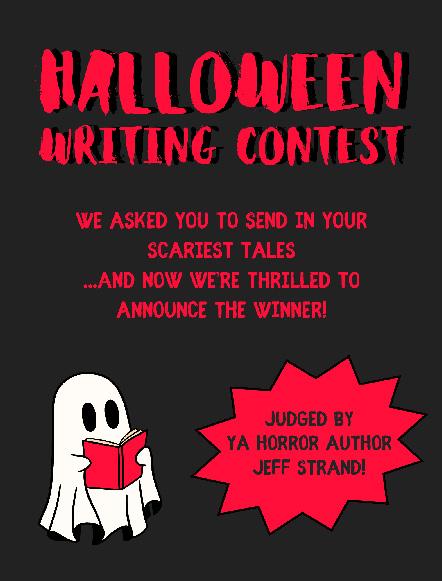
ARTICLE BY STEVEN WANG, BROOKLYN, NY
I turned sixty-eight yesterday, quietly celebrating with just a cold beer and my recliner. Normally, I don’t mind being alone, but this time, I wished for more than just a “Happy Birthday!” text.
My wife passed away years ago. Since then, I’ve sold our house, moved into an apartment, and spent most of my days questioning the point of it all. You spend your life with someone you love, grow old together, and then suddenly, you’re left alone in a world that moves on without you.
On my birthday, I made a decision.
I wasn’t going to be alone anymore.
I decided to find my next true love and thought a nursing home would be a good place—plenty of women my age with nowhere else to go and nothing to do.
But I can’t afford a nursing home. Medical bills and my wife’s funeral drained my savings. My only hope was that my kids would help out.
So, I came up with a plan.
I texted all three of my children, saying I needed to move in with one of them and needed someone to look after me. I called and bugged them, reminding them that I’m only getting older and that one of them would have to take me in eventually.
Finally, my kids came to my apartment for what turned out to be an "intervention."
“Dad,” my daughter Melody said, “we already have eight in our house. We can’t add one more.”

I always liked Melody. She's married and raised a good family. I can’t even remember why she stopped calling.
“Yeah, eight if you count the dog and the two goldfishes,” William scoffed.
William has always been a bit of a problem.
“Well,” I said, “why can’t I live with you then, William?”
“I’m a fisherman. Four weeks on, four weeks off. What happens if you hurt yourself and I’m not home for three more weeks?”
Jacob, my youngest, sat in my recliner with eyes on the ceiling. He was always my favorite child. Always the nice, quiet one. This must have been difficult for him.
“So, what?” I asked, pretending to get upset, “you’re gonna dump me in some nursing home? Is that it?”
They fell right into my trap.
“None of us can afford that, Dad!” William blurted out.
“It’s true,” Melody added, “Jonathan has his college tuition, Amy recently broke her leg, and you know my hours got cut at the library. Even if all three of us split it, we couldn’t afford it.”
I couldn’t believe what I was hearing.
“Do you expect me to be alone and suffer?”
“No,” Jacob finally spoke up. He got up from the recliner, walked over to the bookshelf, and set down a pistol and a single bullet. “We think it’d be best if you got back together with Mom.”
ARTICLE BY RUOHAN HUANG, SAMMAMISH, WA
“The sewers.” The woman stares at me, shivering in her dirt-mottled silk shawl. She clutches her sleeping newborn just a bit closer, just a bit tighter.
I nod. “Yes, that’s what I said.”
“The sewers,” she repeats, a guttural lurch to her voice. “We’re going into the sewers.”
The air conditioning sputters and dies; an odd silence falls over the clammy, windowless room. Everything is suddenly too quiet. Too loud. I hear the click of the woman’s throat as she swallows dry.
“Look, I’m sorry—”
“I’m not going into the sewers,” she hisses, the sibilants forced from her teeth like steam from a kettle. “What about my house? What about my job? And my baby— what the hell do you think I’m supposed to do with my baby?”
I close my eyes. Inhale. Exhale. Inhale again. “Bring him with you,” I grit out. Tangles of weeks-unbrushed hair trap the irritating summer heat around my neck, and a sharp headache throbs behind my eyes, through my temple. I dig a thumb into the soft hollow below my left brow. “It’s too dangerous for the both of you. Come on, you have to leave. They can find you here. Anytime.”
The baby starts to wail, siren-like. The sound ricochets off the cement walls, and the solitary light bulb above us flickers and swings with a sanguine laziness. I curse under my breath.
“Shhh… shush, please, shush, it’s okay, shhh — they’ll hear you—” But babies don’t understand, babies don’t care, and life is ugly, I think. The woman pats him with panicky hands, the same irregular cadence as my
thudding heartbeat. And then—
I feel them before I hear them. Footsteps. My blood chills to ice. No, no. I open my mouth to scream run, we have to run, I have to run — but my lungs fail and my jaw slackens and my tongue numbs and I find myself choking on damp, damp air. The telltale stench of rot, the cloying bitterness, the shuddering dread that accompanies something unalive yet not dead
At that moment, adrenaline finally decides to pump in, and I shove the woman with her bawling baby toward the open trapdoor on the other side of the room. “Get in, get in,” I scream — they’ve heard us anyway — “get in, lock it behind you, go down the ladder to the fifth floor — don’t come back! You hear me? Don’t come back!”
“Are you not—”
But then the trapdoor clunks shut and they’re gone and it’s just me in the room, me and my traitor heart, traitor brain, because why did I send them down there?
The door to the room swings open. A man steps onto the threshold, looks at me piteously. Waits.
“I got them,” I rasp after a long beat.
His face cracks into a long sneer. “Good work. Y’think they’re enough to keep the necrovians back a week or two more?”
“Y-yeah,” I breathe, because they are. Because they have to be.
The man walks closer. The smell of rot grows stronger. A shrill scream rings from far below, and it sounds terribly like mine.
ARTICLE
Every day feels exactly the same as the last, Iris wrote in her diary, tapping the edge of her pen on her teeth. The rhythmic click of her pen matched the ticking of her clock. It feels like I’ve been stuck in a dream. She signed the entry, closed the book with a loud crack, and threw the diary on her desk before looking in the mirror. Her braid had come undone, with tangles shooting out, making her look like a cartoon character who had encountered a demon.
She sighed and undid her braid. She wanted to at least attempt to look nice for her date with Bryan. Her dark orange hair strained against the comb, threatening to break the cheap plastic in half, but after ten minutes, she finally managed to make herself look decent. She pulled her hair into a tight bun, adding a small piece of ruby to the top. It sparkled in the sunlight and brought a smile to Iris’ face. She also decided on a ruby ring and bracelet to accompany the theme.
After another half-hour, she had managed to decide on both what clothes to wear and what makeup to apply. She figured purple would make her eyes pop out, and she was right. The amethyst-purple dress she had on flowed as she spun around in front of the mirror. Tonight was going to be absolutely perfect
She grabbed her purse and left, locking the door behind her. The smell of freshly baked bread hit her as she descended the steps. The setting sun bathed the neighbourhood in a warm, golden light, and a gentle breeze carried the scent of blooming flowers. It was a beautiful evening for a date. As she approached the meeting spot, Iris spotted Bryan waiting outside. His warm smile made her heart flutter, and she couldn't help but smile back. They exchanged greetings, and Bryan walked her into the cosy, dimly lit eatery.
The night started off just how Iris had dreamed, with a nice meal and some delicious wine being served, but
as Iris grabbed his hand, he pulled back. He winced as his hand burst into tiny flames, and she yelped and jumped from her chair, staring at Bryan.
“What the hell . . . ?” she asked quietly, thinking back to the ruby jewellery, which was known in the witching community to ward off demons and evil spirits, and it concerned her as to what Bryan was.
“I’m . . . a demon, but not an evil one. Iris, I’ve tried dozens of times to make this date perfect, and every time I try, you find out. But every time I reset this, you come back even better than before. I love you, Iris. I hope next time will be better.”
Every day feels exactly the same as the last, Iris wrote in her diary. It feels like I’ve been stuck in a dream. But she had one thing to look forward to, her date with the cutest boy she’d ever met, Bryan.

I listen to the wails and cries of children each night as they look up into the sky and wish upon me for a better life.
BY ANGELA FANG, FORT LEE, NJ

Somehow, somewhere, alone in my mental prison, a voice of regret appeared — and I knew I was no longer alone.
BY EMMA KUTZ, WEST CHESTER, PA
Comforted by the familiar weight of her cat she fell asleep, only to remember her cat died last week.
BY EVALYN CHEN, WEST LAFAYETTE, IN
As the cursed night dragged on, the desperate pounding and the relentless screams outside his door only grew louder.
BY MICHELLE MENG, CHICAGO, IL
She found her husband's marriage ring on her desk, but she had buried it with him a year ago.
BY VASILA EGAMOVA, PHILADELPHIA, PA
The girl pushes the middle-aged man away, "I don't want to play with you!" because mom says it's impolite if a girl plays with her food.
BY RUNXIN LI, BLAIRSTOWN, NJ
I woke up to the sound of my chihuahua eating his breakfast; the little rascal was chewing on my roommate’s eyeballs again.
BY JASON LU, EAST SETAUKET, NY

ARTICLE BY JON CEKODHIMA, TIRANA, ALBANIA
The argument revolving around capital punishment is one that people have been debating over for many years. While the fundamental concept of justice may resonate universally, opinions diverge widely on the appropriate balance and severity of its consequences. Self-evidently, the death penalty poses many dilemmas, often being regarded as a violation of basic human rights. This fact leads many to ask: does the death penalty truly serve its purpose? Most argue that its continued existence goes against the very values that our judicial system is supposed to protect. Thus, it's time to give the death penalty some serious thought in order to move toward a society that is fairer and more just.
One of the main reasons why so many countries in the world have banned the death penalty is due to the extreme amount of money needed to carry out such a punishment. In fact, the money
needed for capital punishment is way less than all the expenses of a system utilizing life without parole. Longer trials, many appeals, and the relative frequency of executions are the reasons behind this expense. Most cases in which criminal punishment is sought don't end up with the culprit being executed. Even when the death penalty is imposed, very often, it is then overturned in the courts. The usual conclusion of the process includes the criminal getting a life sentence, but with a higher cost, due to the death penalty procedure that led up to that point. This suggests the death penalty is an extremely expensive and inefficient process in terms of both money and time.
Unfortunately, there have been many cases in which an innocent person was blamed for a crime and had to suffer from the consequences of another person unjustly. In some cases, this consequence has been the death penalty. This sad reality shows a deep inequity in the country's legal system. The idea of an innocent person experiencing the worst possible form of
punishment incites anger and sorrow in many. The accounts of those unlucky enough to be innocently convicted reflect the flaws in the use of the death penalty. A very recent occurrence of this happened to a man named Nathaniel Woods. On March 5th, 2020, Nathaniel Woods was executed after being wrongfully accused of the killing of three Birmingham officers. He was unarmed at the time and was incorrectly convicted for purposefully luring the officers to their deaths. This is one of the many cases in which a person had to lose their life due to the flaws of the judicial system. If the death penalty wasn't carried out, the man would eventually be found not guilty and would be excused from his sentence. But that cannot happen if the suspect has been executed, proving to be yet another flaw in using capital punishment.
One may argue that capital punishment is fair and a form of justice for the family of a loved one who has been murdered. While capital punishment may be satisfactory for the victim's loved ones, it has been proven not to be a good deterrent to crime in its entirety. By implementing a moratorium, which is a temporary suspension of a law, a synthetic control assessment revealed no evidence of a deterrent impact related to death penalty statutes. The homicide rates did not significantly decrease as a result of the moratoriums, therefore showing that the death penalty did not have a significant effect on crime. Although the study takes into account only four states, the results are important to take into consideration for future policymakers, as they show the ineffectiveness of the death penalty.
In conclusion, the death penalty is an extremely inefficient form of punishment. The process that leads up to the execution is highly likely to fail, leading to an extreme waste of effort and resources. Additionally, the length of the procedure and the number of permits needed contribute to the high cost. The process is also very risky. Although it happens very rarely, there is a chance that the suspect is, in truth, an innocent person, causing harm to the state and the family of the civilian and potentially sparking protests. There is also no evidence revealing that the death penalty deters crime. This means that states that use capital punishment harm the lives of innocent and spend great amounts of money for little to no effect on crime in its entirety.
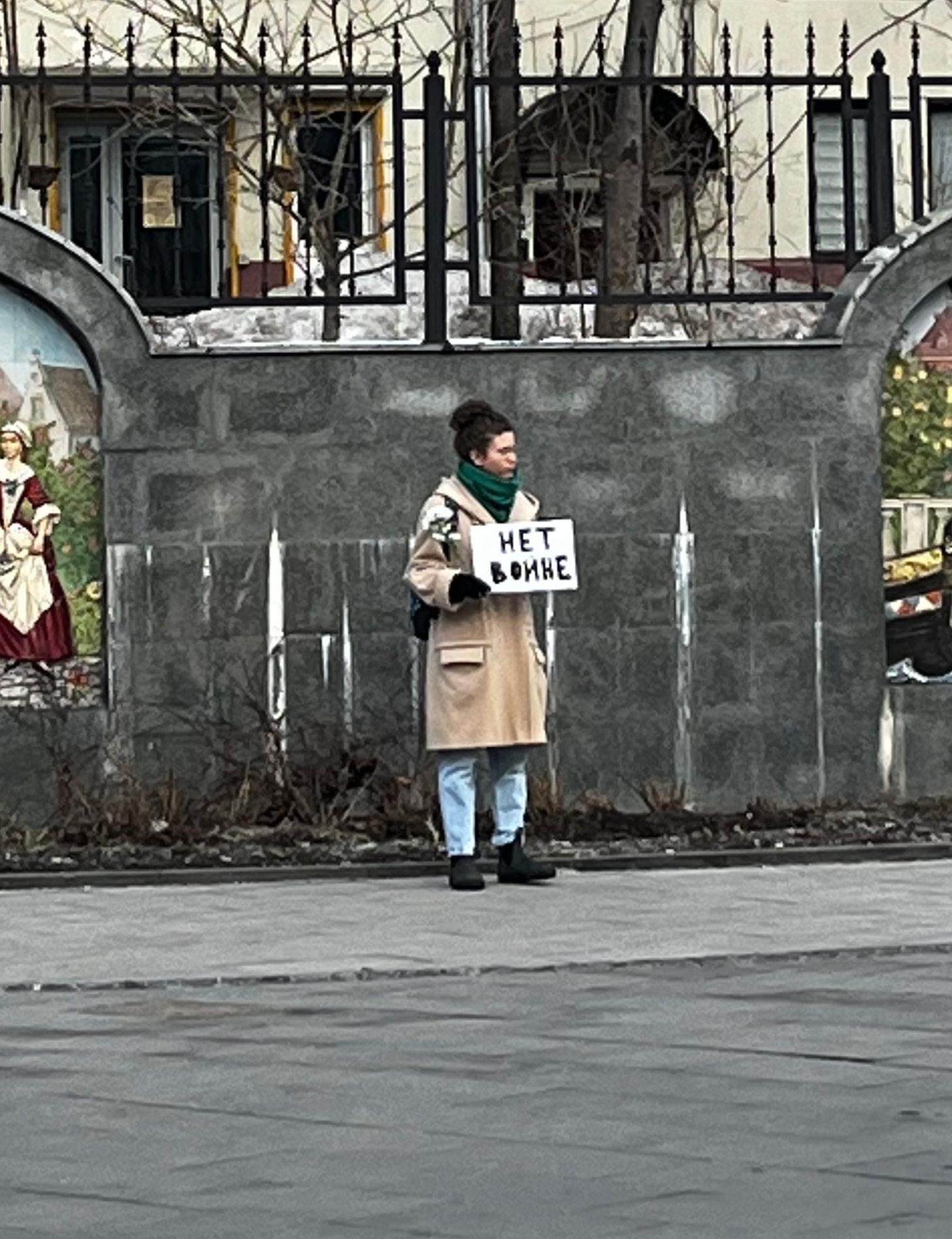

ARTICLE BY ANONYMOUS
PHOTO BY ALISA OLESOVA, MOSCOW, RUSSIA
The ongoing war in Ukraine holds a unique resonance for me due to my distinct ties to it. While my family and extended family has almost no ties to Ukraine or Russia whatsoever, I am unique in the sense that I share some connection to that area: my genes. Despite the absence of connections in the family, my sperm donors, both my biological mom and dad, are from two different areas in Ukraine. For most of my life I’ve never been too concerned with my biological origins and was indifferent to where I came from (from a genetic standpoint), but this war has sparked a newfound curiosity and concern for this country that is part of my heritage.
As my situation has brought me closer to this war on the other side of the world, I’ve become intrigued by one detail. One that makes the unanimous support of the war from either side seem unlikely: the similarity between Ukrainans and Russians. I’ve started to form some sort of concern and solidarity with Ukraine just because of the fact that it is a small part of my heritage, yet the Russians are at war with them despite sharing much more. It has been frequently cited that the languages of Russian and Ukrainian share about 62 percent of their vocabulary. Furthermore, Ukraine and Russia were both part of the USSR until 1991, only around 20 years ago, meaning that the current two countries must share much of the same culture and traditions. These similarities sparked the question of why these two countries would go to war with each other, knowing the similarities between the two.
All evidence for the start of the war pointed at Putin, who declared that Ukraine still belonged to Russia, despite the emergence of the independent nation of Ukraine as a result of the dissolution of the Soviet Union.
In contrast to Russia, Ukraine has taken on a democratic and more liberal form of government which is seen as a threat by Putin. Since this newfound success of a democratic government may have had an influence on Russians, Putin has been trying to get Ukraine under his control for a while, with this being only the latest, but most extreme attempt since the invasion and annexation of Crimea. But, the country of Ukraine and its people have fought back, resisting Russian attempts at control which can be shown throughout the last 20 years, with one example being the Euromaidan protests, resulting in the removal of their former pro-Russian president.
With Russia’s constant attempts to claim Ukraine, and the Ukrainian peoples constant efforts to thwart those attempts, they put their determination for a self-governing nation on display. While I don’t have many
...THIS WAR HAS
IS PART OF MY
ties to the country, I feel a profound sense of solidarity with the Ukrainian people and that my connection to my Ukrainian genes has strengthened. Their struggle for independence and determination have made me realize that my genetic roots tie me to a resilient nation striving for its rightful independence and democratic government. This newfound awareness has not only helped my understanding of the politics of the region, but it has also instilled a sense of pride in the small yet significant part of my heritage that is Ukrainian.

ARTICLE BY IPSI KARNAM, HOLLY SPRINGS, NC
All around me there are people. All around me, there is red. Women with red handprints painted over their mouths, people with signs, people with megaphones. And there’s me. I stand out in the crowd wearing a newsprint jacket over my red t-shirt. I thought it was fitting, and it does its purpose. They came here to protest. I came here for stories.
“Roe v. Wade has been a critical part of women's healthcare for decades. Overturning it is a huge step backward for our society,” a woman explains. Her name is Jessica Adams and she’s one of the speakers bravely sharing her tale today.
June 24th, 2024, is the second anniversary of the disastrous Dobbs decision. When the Supreme Court overturned Roe v. Wade, it opened the doors for a dystopian future for women across the United States.
Feminists are taking action — striking, marching, getting out the vote — across the country.
Roe v. Wade was a landmark decision by the U.S. Supreme Court in 1973 that established a woman's legal right to an abortion under the Fourteenth Amendment to the Constitution.
The case was brought forward by "Jane Roe," an alias for Norma McCorvey, a Texas resident who
sought to terminate her pregnancy but was unable to do so legally under Texas law, which prohibited abortions except to save the mother's life. Henry Wade, the district attorney of Dallas County, Texas, was the defendant responsible for enforcing the state’s abortion laws.
Roe's attorneys argued that Texas laws criminalizing most abortions violated her constitutional rights to privacy and liberty as protected by the Due Process Clause of the Fourteenth Amendment. The state of Texas argued that it had a compelling interest in protecting prenatal life and the health of the mother, justifying the restrictions on abortion.
On January 22nd, 1973, the Supreme Court, in a landmark 7-2 decision, ruled that the Texas law violated Roe's right to privacy. Justice Harry Blackmun wrote the majority opinion.
The Court established a trimester framework to balance the state's interests with a woman's privacy rights. In the first trimester of pregnancy, the decision to abort was left to the woman and her physician. In the second trimester, states could regulate abortions in ways reasonably related to maternal health. Once the fetus reaches viability in the third trimester, states could restrict or ban abortions, except when necessary to protect the mother's life or health.
The Court located the right to privacy within the Due Process Clause of the Fourteenth Amendment, recognizing it as "broad enough to encompass a woman's decision whether or not to terminate her pregnancy."
Roe v. Wade effectively legalized abortion nationwide, overturning many state laws that heavily restricted or banned the procedure. The decision sparked intense and ongoing debates on ethical, moral, and legal grounds. Proponents viewed it as a victory for women's rights and reproductive freedom, while opponents saw it as morally wrong and an overreach of judicial power.
“The Dobbs decision is a victory for the sanctity of life and the protection of the unborn,” a man walking with a March for Life banner tells me. “All lives have value! You can’t just get rid of a baby if you decide you don’t want it!”
The Roe vs. Wade trial paved the path for more, such as the Planned Parenthood v. Casey trial of 1992. This case reaffirmed the core holding of Roe but replaced the trimester framework with the undue burden standard, allowing states to impose restrictions on abortions as long as they did not place a substantial obstacle in the path of a woman seeking an abortion.
But almost 50 years later, on July 24th of 2022, the Dobbs v. Jackson Women's Health Organization case resulted in the Supreme Court overturning Roe v. Wade, ending federal protections for abortion rights and returning the authority to regulate abortion to individual states.
“The decision to overturn Roe v. Wade is not just a legal or political issue,” a protester declares. “It's a human rights crisis.”
Following the overturning of Roe, many states enacted or activated laws severely restricting or banning abortions, while other states moved to protect and expand abortion access. The decision has led to a patchwork of abortion laws across the country, reflecting deep political and cultural divisions on the issue.
“Roe v. Wade imposed a one-size-fits-all policy on the entire country. This ruling allows for more localized approaches. It’s more practical, and extremism like this can’t be a solution.” Jackson, who wishes to be known by his first name only,
says, gesturing around at the crowd.
The protest is huge, thousands of people coming out to participate. Groups of people with banners and posters march by.
I see a man with a sign reading, “MEN OF QUALITY DO NOT FEAR EQUALITY.”
"I'm here for my daughter, for my wife and , my friends, for everyone who might need access to safe, legal abortion. We have to protect this right,” he tells me. “This is democracy.”
“Right-to-Life your name’s a lie, you don’t care if women die!” An angry chant rises from the streets, targeted towards the counter-protestors.
People are shouting, arm in arm, united by a cause. We march to city hall. I speak to more people. A woman with a sign declaring that, “MOTHERHOOD SHOULD BE A CHOICE, NOT A PUNISHMENT.”
My own sign is held loosely at my side. It seems so small, made of flimsy cardboard and sharpie next to everyone’s large poster boards and cloth banners. A group of girls my age pull up next to me and a brunette smiles. She takes the hand with my poster and pulls it into the air. We exchange a glance and scream the words out together. “IT’S NOT AN ACT OF LOVE IF YOU MAKE HER!”
The rest of her group cheers and hollers with us and a bunch of other protestors join our cry. For a brief second, it’s made of magic. Then it dissipates, swallowed up by the noise of the crowd and other chants.
The rest of the girls have signs like, “KEEP YOUR LAWS OFF OF OUR BODIES,” and my personal favorite, “SO BAD EVEN THE INTROVERTS ARE HERE.”
I look around me and I see humans. Humans with lives, who have the right to choose what happens to their own bodies. A new chant rises up. “Not the church, not the state, women must decide their fate!”
This is not just about abortion. It's about control, and it's about taking away our fundamental rights. And there will always be people who will stand up for them.




BY NIHARIKA PATEL, MUMBAI, INDIA



BY ROBERT DAVIS, TAMPA, FL

NOT ALL ANGELS HAVE WINGS. SOMETIMES THEY HAVE WHISKERS!
BY
BY LALA WU, HARTSDALE,


BY MADISON COSSABOOM, NEWARK, DE

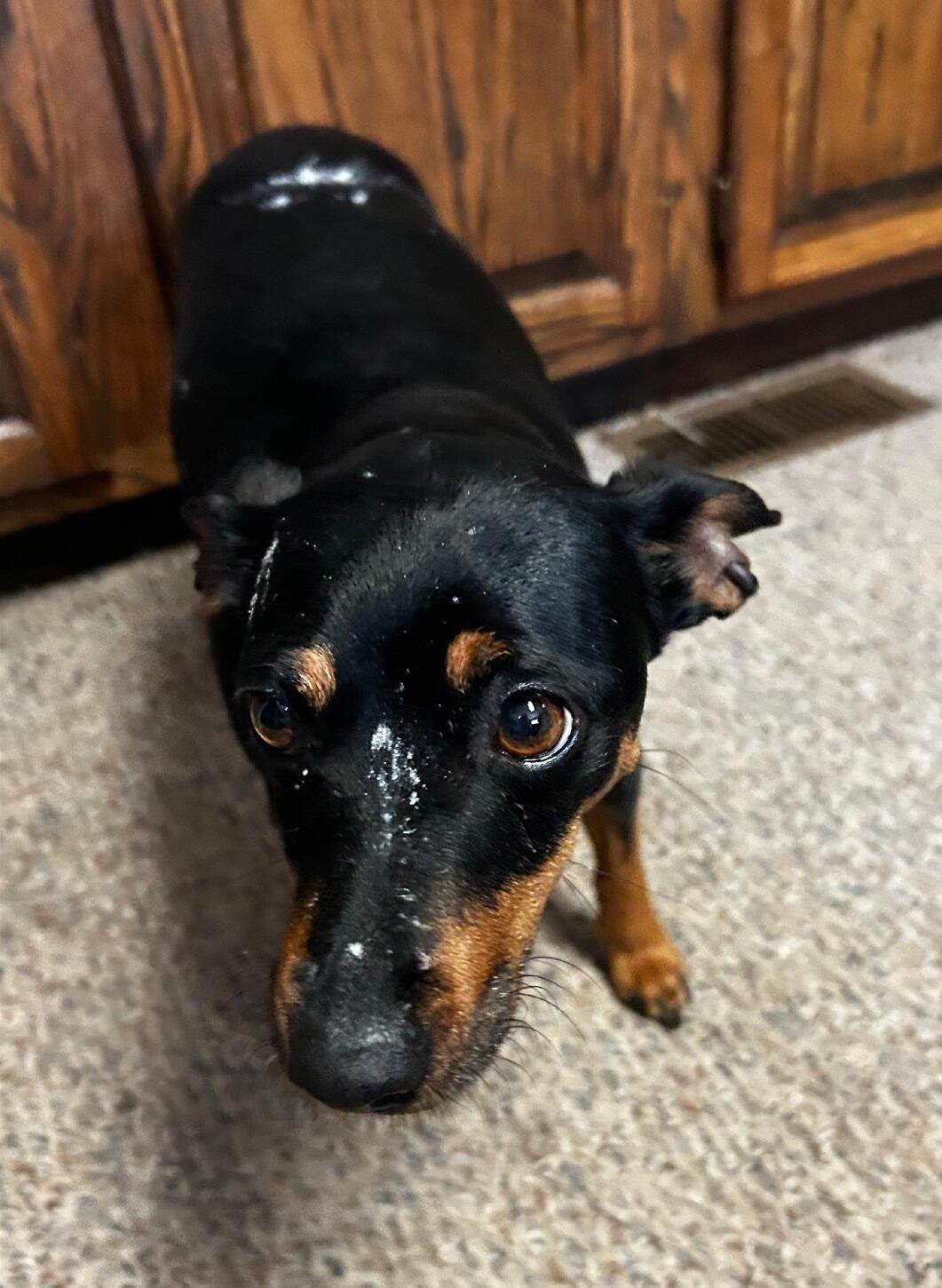

BY MADILYN CHARLES, ENSIGN, KS
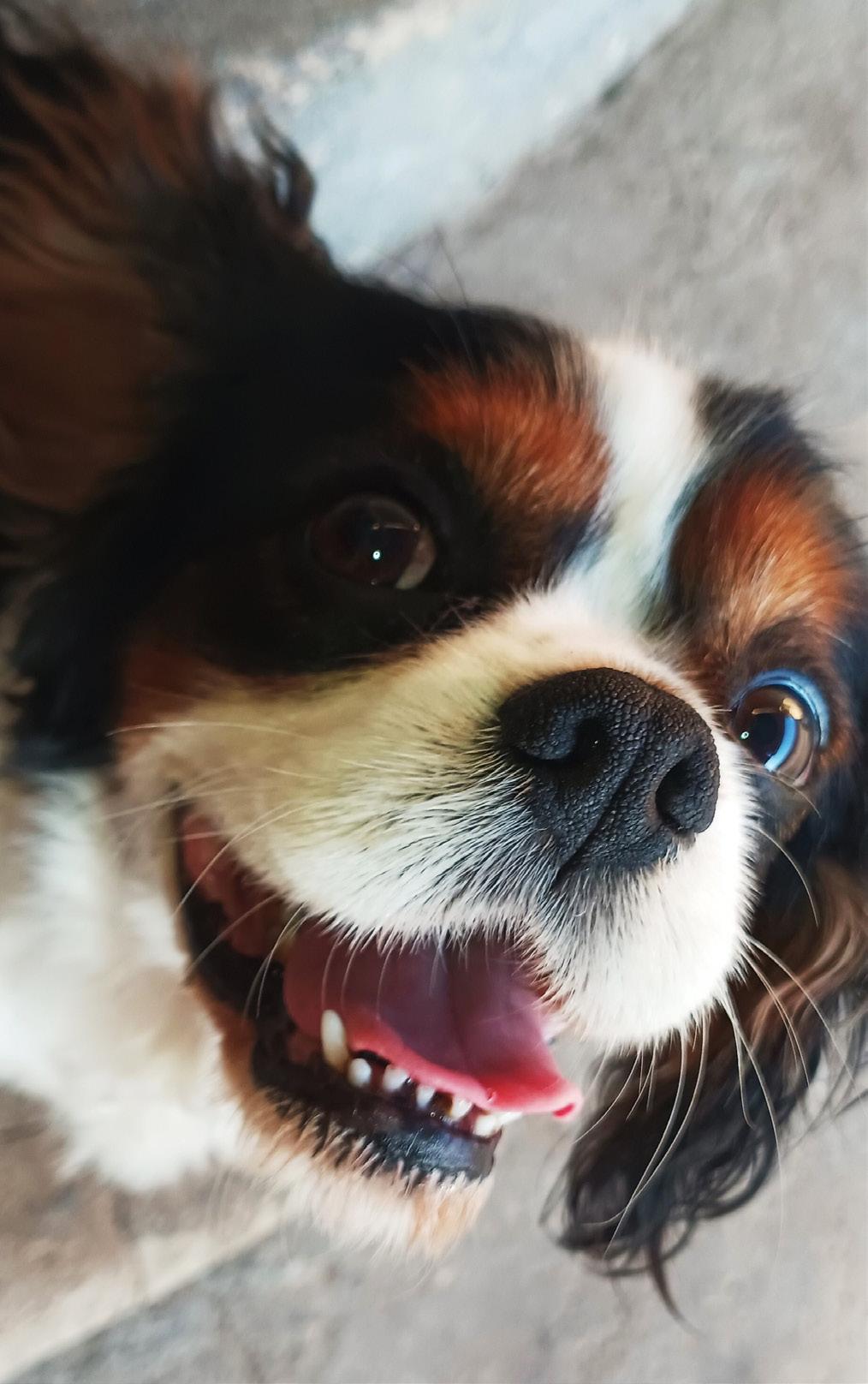
POST-PLAY
HAPPY HAPPY HAPPY BY ALICE DING, LOS ANGELES, CA

ARTICLE BY ANONYMOUS
PHOTO BY KHUSHI MAHAJAN, NOIDA, INDIA
Generative AI, exemplified by Large Language Models (LLMs), has revolutionized various sectors globally. Chinese companies like Baidu’s Wenxin and Alibaba’s Alice, along with American game-changing generative AI such as OpenAI's ChatGPT and Google’s BART, have opened new opportunities for businesses and individuals in applications like chatbots, virtual assistants, and content creation. These models have immense potential to enhance language translation, customer service, and online content accessibility.
As the adoption of generative AI continues to expand, it becomes clear that implementation can vary significantly across countries due to regulations, cultural backgrounds, and language differences. These variations in cultural norms can impact the type of content produced by the models and how they are received by different communities. While generative AI offers numerous benefits, concerns about fairness and equity arise, particularly in its global implementation. One of the key challenges is the potential for dissimilar outcomes in different countries, which may exacerbate existing inequalities.
As AI becomes more sophisticated with billions of parameters, concerns about perpetuating and amplifying social biases grow. Bias in AI systems can arise from various sources.
Training data quality plays a crucial role in AI output. LLMs, relying on vast amounts of real-world data, face challenges in this regard. Biased or incomplete training data can lead to harmful stereotypes and discrimination. Amazon’s AI-powered hiring tool from 2018 serves as an example. Trained on primarily malesubmitted resumes, the tool exhibited bias against female candidates, downgrading resumes containing words like “women” or “female” and favoring words more commonly used by men. To prevent discrimination, it is essential to train AI systems on unbiased data.
Modeling and algorithm bias can result in unfair outcomes and systemic discrimination. A 2018 MIT and Stanford study found that facial recognition systems produced higher error rates for darker-skinned individuals, highlighting the potential for biased decision-making.
Fairness in AI development has gained significant
public attention, leading to a surge in research on the topic. From 2020 to 2023, over 70,000 articles were published on “fairness in AI,” compared to around 20,000 in the preceding period of 2017 to 2020. This increased interest indicates a growing recognition of the importance of fairness and ethical considerations in AI system development. However, more work is needed to translate these efforts into concrete actions and solutions that mitigate the risks of AI bias and discrimination.
The development and use of AI systems are subject to different regulations worldwide, leading to divergence in approaches to AI. China, for example, issued an AI management regulation in 2021, outlining guidelines and principles focusing on ethical practices, safety, fairness, transparency, and sustainability. However, these regulations also restrict access to AI tools like ChatGPT. Similarly, the European Union has implemented specific regulations to address data privacy issues, resulting in Italy temporarily banning ChatGPT due to privacy concerns. Such legal variations can impact the development and application of generative AI globally, with some nations prioritizing ethics while others focus on privacy concerns.
Different social environments also significantly impact the experiences of generative AI. China’s heavy censorship can introduce biases into the training data, leading to biased AI systems. Additionally, most AI systems, especially LLMs, are trained on English language data, giving English-speaking countries a wider advantage in generative AI.
The potential for bias and limitations in AI systems emphasizes the need for diverse and representative data sets and ethical considerations to ensure fair and responsible use of generative AI. Countries can work towards creating more accurate and objective AI systems through international collaboration and the establishment of standards.
The future of generative AI is promising, with potential large-scale implementation across various industries. In healthcare, generative AI is being explored for medical imaging to improve diagnoses and personalized treatment. In art, platforms like Midjourney have already facilitated the use of
generative AI by artists, opening new avenues for innovative works.
With the potential to transform numerous industries and promote creativity, generative AI has an optimistic outlook. The productivity, efficiency, and innovation in numerous industries may grow for nations that are able to build significant AI capabilities. These advantages may pay off in ways that boost global competitiveness and economic growth. A risk of some employment being replaced by AI does exist, especially in sectors that are more vulnerable to automation. This may result in the loss of jobs and perhaps an expansion of economic inequality, especially in nations that depend more heavily on potentially automatable industries. For example, Traditional assembly line jobs that involve repetitive and routine tasks in the manufacturing industry have been increasingly automated, leading to a decrease in the number of human workers required for such roles. Thus, it will be crucial for policymakers to create strategies that reduce these adverse consequences of automation and guarantee that the advantages of AI are distributed fairly within and between nations.
The development and deployment of AI systems hold great potential for innovation and efficiency, but they
also come with fairness issues that must be addressed to achieve their full potential with minimal side effects. To effectively tackle the challenges aforementioned, international cooperation is paramount. Countries may collaborate to develop more precise and objective AI systems that serve society as a whole. This can be accomplished by passing global regulations for the design and use of AI that take into account the various viewpoints and requirements of different geographical areas. Together, nations can ensure the benefits of AI are shared fairly and that the technology is created in accordance with moral principles and values that prioritize human welfare. The two dominant players in this field, China and the US, have a significant responsibility to foster such collaboration and guarantee the equitable advancement of AI. By taking the lead in ethical and fair AI development, China and the US can advance the progress of AI that is innovative, efficient, and beneficial to all. With the collaboration between nations, the creation of objective and accurate AI systems that benefit society has the potential to promote innovation and economic development while creating a more equitable world.

ARTICLE BY MYA ELMAGRABY, ARLINGTON, VA
Consciousness is defined as the ability one contains to be aware of themself, thoughts and feelings. The rather infamous question on whether Artificial Intelligence is a conscious being or not, and the conclusion is that no answer exists. The concept of Artificial intelligence being conscious is relative, meaning that not one individual can determine whether Artificial Intelligence possesses consciousness. While countless debates can be made in either favor, neither argument can be proven to be entirely accurate. The truth is, there simply does not contain enough research to completely understand the idea of consciousness. No one can ever prove that Artificial Intelligence is conscious, because humans cannot even prove that anything is conscious. And if humans have yet to understand the idea of consciousness, how would they decide on whether Artificial Intelligence is conscious or not? Artificial Intelligence is simply a product of human creation, so how can a computer screen be conscious?
Human consciousness is based on experiences and desires rooted in their needs and wants. Although humans can simulate a system that appears to be self aware, there is no definite way of deciding whether that system is conscious or not. The human mind possesses subjective experiences, which is defined as personal feelings or thoughts that only humans can feel. They are how humans see and feel things in their own mind, which is usually different from how others experience the same thing. Subjective experiences are something that Artificial Intelligence cannot experience. A human might experience the taste of their favorite candy and find it pleasurable, associating it with happiness and good thoughts, Artificial Intelligence cannot however experience this. Artificial Intelligence could however process data about
chocolate and identify its chemical components and structure but it cannot replicate the subjective and emotional connection humans feel. Artificial Intelligence lacks emotional responses that shape human subjective experiences and the conscious mind. However, despite these considerations, multiple types of consciousness coexist together. How would one know Artificial Intelligence does not fall under one of these categories? Some theories and/or hypothetical scenarios involve beings or other living things that possess awareness and cognitive abilities, but do not experience emotions as humans do. A theory proposed by Daniel Dannett, which states that consciousness is not a single thought but rather a series of ongoing "drafts" in one’s brain. This theory could help support the argument that Artificial Intelligence exhibits a form of consciousness, however not to the extent of human consciousness.
However, this does not diminish the possibility that Artificial Intelligence could potentially reach a level of consciousness similar to humans in the near future. One can argue that Artificial Intelligence is essentially just patterns programmed by humans, and responses are generated based upon these patterns. Artificial Intelligence, if not conscious, then is rather a model made to replicate aspects of consciousness. However, a more real perspective is that Artificial Intelligence demonstrates consciousness in an unhuman like way. Will Artificial Intelligence ever reach the level of advancement comparable to humans? It is already similar to humans in many aspects, however it is only as powerful as a human trains it to be.
ARTICLE BY MEHRIN HIRAWALA, MANCHESTER, CT
May 13, 2024
“There is no demand for women engineers, as such, as there are for women doctors; but there's always a demand for anyone who can do a good piece of work,” says Edith Clarke, the first successful woman engineer. This quote reminds me of the first time I thought about wanting to become an engineer. It had all the qualities that demonstrated who I was: creative, innovative, unique. I’ve dreamt about a different future for myself every year-- once I wanted to become a doctor but I didn’t like blood or hospitals. Another time I wanted to become an architect, but I just didn't want
...[WOMEN] DON'T WANT TO STAY IN A FIELD WHERE THEY ARE NOT RESPECTED OR TREATED FAIRLY
to be stuck working with buildings. I even liked business. But it just didn't spark my interest for long. Engineering was the only field that I felt my true passion lay. It was everything that defined me! But the fear of becoming a part of a field that won’t respect me or treat me unfairly for being a woman always will make me hesitate.
According to the society of women engineers, “In the 1990's women represented nine percent of the individuals working in architecture and engineering. By 2023, the percentage of women professionals in
those fields had grown to 16.7 percent, but they are still underrepresented compared to their male counterparts.” Yes, more women are becoming a part of the engineering field, but what's the point if they are not even respected for their work if they are not given the recognition that they deserve?
According to Market Watch, “Although the nation requires a technologically skilled and creative workforce to compete in global markets, approximately one-third of women entering engineering education programs leave the profession to pursue other careers.” There's many successful women engineers from Edith Clarke to Hedy Lamarr to Emily Roebling but do we know about them? Their Inventions? The clear answer is No. At least not the way we know about Nikola Tesla (invented electricity) or Thomas Edison (invented light bulb), or Henry Ford (invented assembly line), or even Alexander Graham Bell (invented telephone). The only difference amongst all these people is their gender.
The issue isn't that women find engineering hard and that's why they leave the field. The issue is that they don't want to stay in a field where they are not respected or treated fairly. A woman's effort has always been disregarded in the engineering field. I mean why would they want to be in a profession where they hold no value. The dominance of men in the engineering field has always been clear but the disrespect and judgment a woman gets for wanting to pursue in the same field is absurd. Why aren't women valued enough in the engineering field? Why aren’t they given credit for their hard work?
As a woman who hopes to pursue mechanical engineering, I know the struggle will be real. I know what’s coming my way—the critical looks, the condescending remarks, all because I'll be one of the few women in a male-dominated field. This will be difficult, but I know my passion for engineering will outweigh the challenge of facing scrutiny.
The biggest misconception about mechanical engineering is that it doesn’t suit women and it's made for men, which is completely false. Because these misconceptions exist, most women tend to avoid being a part of the field. Women are entering a field where they are treated like failures, as if they chose the wrong career.
Schools need to prepare women who see a future in engineering. It's important that women get the proper encouragement to boost their confidence in a field
where men are dominating. By creating mentorship programs, awareness campaigns, or changes in curriculum women will feel empowered to do better. We need to inspire young women to follow their passion of engineering and become part of a change. Although most people say that women are respected and being seen in STEM fields, the truth is women have always been underrepresented and are still inclined to doubt their capabilities. One piece of advice I learned from my peers is to never doubt your capabilities, especially before you put in the effort. Don't stop pursuing what you were meant for just because others may not praise or credit you; you should know your worth. Gender inequality does exist and only we can rise above it to eradicate these flaws that exist within our society. Only we can create the change that we want to see in our world.
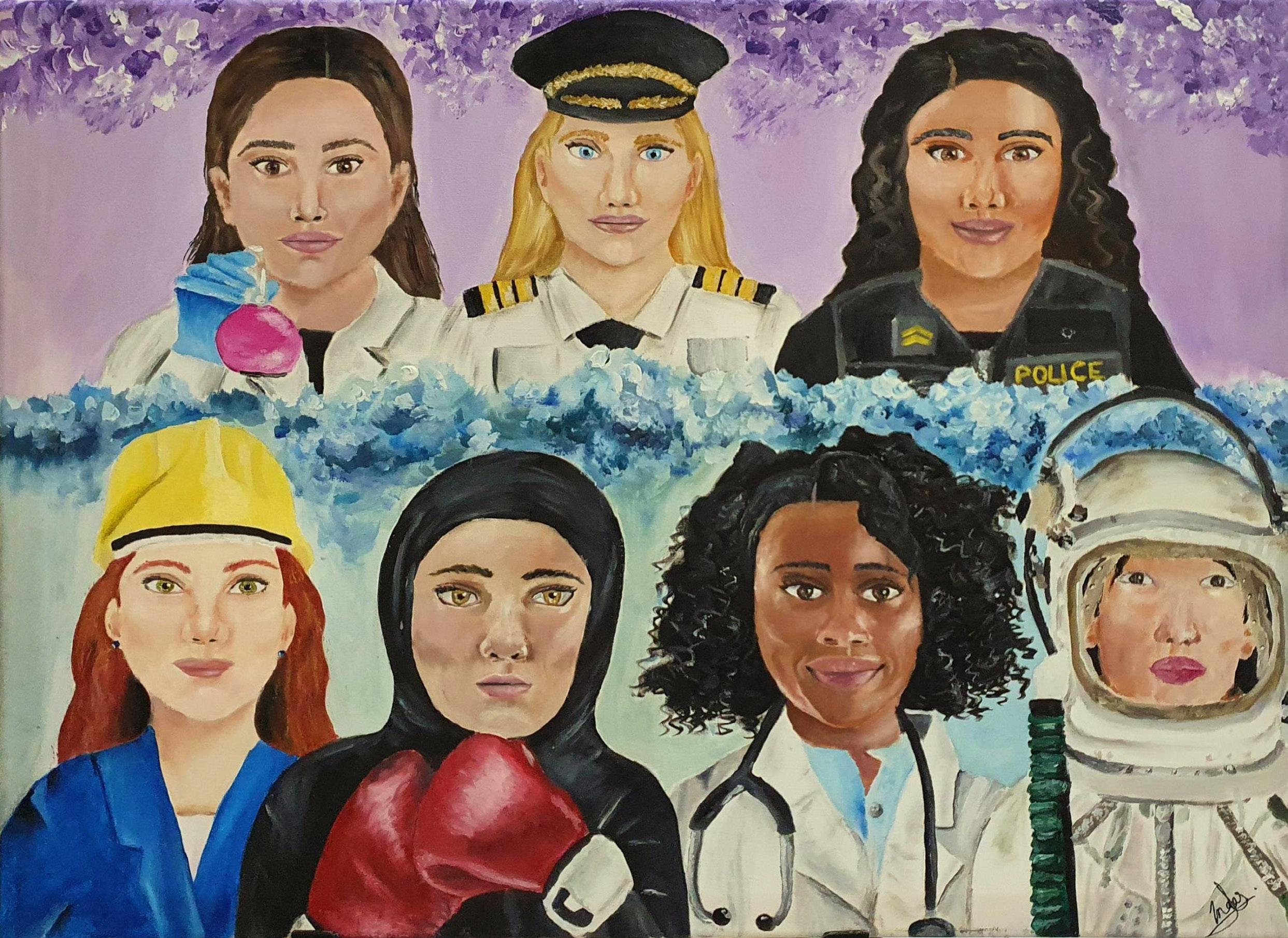


ARTICLE BY ANONYMOUS
PHOTO BY JONATHAN LEE, SUNNYVALE, CA
Today, we stand on the verge of a completely new medical and biological era. With the advent of novel gene editing technologies like CRISPR-Cas9, our future now holds possibilities previously only possible in science fiction. These technologies offer so much potential — as put by Nature; they can do everything from completely eradicating bacterial diseases to treating the most complicated genetic afflictions. At the same time, our usage of such technology raises profound ethical dilemmas and questions about how we are impacting future generations with this technology. I believe gene-editing technologies should be used to exclusively affect the current generation, as any changes to future generations may be unwanted and unnecessary.
The key distinction is in somatic and germline gene editing. The former is incredible in its ability to administer personalized treatments to people and cure the uncurable. The latter, however, is quite the opposite — it raises ethical dilemmas that we’ve grappled with for years, predominantly that of consent. Altering future generations at such a fundamental level without their approval completely violates personal liberties and rights. Such germline editing may start for initially beneficial reasons, such as curing genetic defects. Even still, this is problematic in its potential ramifications and can turn malicious quickly. Take, for instance, the case of He Jiankui, who, with deception and forgery, implanted genetically edited embryos into women — for his actions, he was jailed for three years. He completely forewent the informed consent of the women and fundamentally changed babies that otherwise had no defects. Informed consent is so important because people need to know what they are getting themselves into. When our ethical framework is as weak as it is now, cases of such misuse will abound if germline editing is widely allowed.
More than just misuse, though, the technology is simply not ready to be used safely, especially on a germline scale. An article by the National Institute of Health shows that such gene editing technology is far too unsafe to be consistently used for germline editing. Any unintended editing can lead to cancer and, if not done properly, can lead to “genetic mosaicism,” where only some cells see genetic alterations take hold. The article further illustrates the dangers of such changes — and, coupled with a lack of consent from the people to whom the changes are being made, it really is a complete ethical catastrophe. In addition to such ethical dilemmas, it can have ramifications for the human population as a whole in the future. Often, the goal of such gene editing is to remove disease-causing alleles. However, this may be secretly harmful to our population by reducing genetic diversity. According to the reputed PNAS, about a tenth of people in Africa are heterozygotic for sickle-cell anemia because it protects them from parasite-induced malaria from the mosquitoes surrounding them. If we blindly allow germline genetic editing with no regulation, we may remove all such disease-linked alleles, which could lead to a decline in evolutionary fitness in the long run by decreasing our diversity and adaptability.
CRISPR and other gene-editing technologies will inevitably develop in the future. The best thing we can do to prevent such harmful uses of the technology, though, is to establish strong, global regulatory frameworks. Far-reaching international organizations like the UN or the WHO should dedicate a sector to regulating the technologies. More specifically, such germline editing should be completely banned until a scientific and moral consensus can be reached on whether or not the technology should be used. We also need to establish ethics committees to rigorously oversee all experimentation done with these technologies, as is common for all disciplines. The path forward is admittedly convoluted, but there is a future where gene editing is ultimately used for good. We just need to work to create that future.

When I was in elementary school, in our living room cluttered with robotics parts, my journey into the universe of robotics began. I was interested by the vast array of parts that I saw scattered across the living room. Little did I know that this would embark me on a journey that would change my life in ways I would never have imagined when I started.
Fast forward to today, as a high school sophomore, looking back on my experience through robotics. My story wasn’t just about robotics, it shows the power of curiosity and persistence. It's a reminder that sometimes, the most extraordinary adventures begin with a single spark of interest. This is my journey in the world of robotics—a journey filled with tough challenges, great triumphs, and invaluable lessons. I am dedicating this experience to my team and coach without which I will not be able to share this with you.
Back in my 3rd grade, my brother's robotics team was setting up their field in our living room. I was intrigued by their components and the focus of the team, I found myself naturally drawn to robotics. After their season concluded, their spare parts were abandoned. In the following months, I spent hours tinkering with those parts, building and coding robots. Little did I know what I was getting myself into.
Fast forward three years, and I found myself starting middle school as a 6th grader. It was then that my father asked me a simple yet pivotal question which started a new chapter in my journey: "Would you like to join the robotics club?" Excited, I stepped into the world of robotics, where I met a community with likeminded individuals who shared my passion for creating and learning. We started as a team of four middle schoolers who barely knew each other. However, our friendship grew along with our minds, and we all shared a curiosity about robotics. Entering robotics, I expected to have fun and enjoy it, however, I did not expect how profoundly robotics would shape my life and the level of success we would achieve over time. We began as an average team in our first season, lost in the world of robotics, struggling to navigate and perform well. But as the season progressed, we improved steadily, eventually making it to the state-level tournament and feeling satisfied with our performance. Our progress continued until
we surprised ourselves by qualifying for the world championship in our first year. Our excitement about participating in the big stage of the world’s tournament was short-lived as the pandemic struck, halting our meetings, and canceling the world championship tournament.
The following year forced us to adapt to the pandemic. We worked together in a COVID bubble, with our four families supporting one another while isolating ourselves from the rest of the world, robotics bonded us together. Despite the uncertainties, it was announced that the competitions would be virtual. We spent lots of time practicing, learning, and adapting to the new, online format. Through these efforts, we qualified for the worlds championship for the second year in a row. In a competition with 300 teams from around the globe, we teamed up with a team from Canada, winning our division and securing a fourth-place finish worldwide.
Having tasted success in seventh grade and with competitions returning to in-person formats, we eagerly entered our third season as eighth graders, which would also be our final middle school year. We vowed to finish strong as our team had become very well known in the robotics community due to our distinctive robot design, consistent autonomous runs, and rapid, high scoring driving. Riding on our reputation and hard work, we garnered a total of seventeen awards during the season, establishing ourselves as a favorite to win the world championship and one of the best teams in the USA. Our goal heading into the world championship was to win, and we were confident in our team's ability to do just that. Competing against 800+ teams at the world championship in three days, we secured second place at the world stage, falling short by just one second to the teams that got first place.
When I share our second-place achievement with others, they often inquire about the prize, they are always surprised that it's only a trophy without any monetary rewards. However, what motivates and drives me isn't monetary gain, it's my genuine love for robotics. Collaborating with friends, brainstorming, designing, building, and meticulously refining code, along with the relationships formed with other robotics enthusiasts, keeps me passionate. The concepts I learned extend beyond robotics and coding. This journey has taught me crucial life skills such as
perseverance, patience, leadership, and teamwork. Transitioning from eighth grade to freshman year in high school brought about numerous changes. The robotics components, electronics, playing field, and even competitors seemed more complex, better, and simultaneously more challenging. It felt just like my first year of middle school, but this time, I was confident in my ability to overcome challenges, knowing that I and my teammates had triumphed previously.
During the summer, we dedicated substantial time to brainstorming, building, and coding our robot in preparation for competitions. At our initial contest, we exceeded our expectations, securing the top three awards and qualifying for the state level competition. Remarkably, we succeeded despite being freshmen competing against high school juniors and seniors. As we progressed from one competition to the next, we honed the robot's design and code based on lessons we learned and interactions between other teams and judges. During the winter break, we made the decision to completely overhaul the robot's design and rewrite the code. We worked tirelessly and ended up qualifying for the world championship as a first-year high school team.
The six weeks between the state and world championships proved to be the most intense period of robotics. We simplified the robot, making it faster and more efficient. Throughout spring break, my team and I coded, tested, and documented in the engineering notebook. Frustration occasionally set in when code that worked one day failed the next due to minor changes in the robot's design, the field, or other factors. Nevertheless, I persisted, surmounting these challenges, and maintaining composure. Together, we journeyed to Dallas for the world championship.
Upon arriving at the world championship, we engaged extensively with teams from around the world, scouting our division's competitors since our matches weren’t until the second day. Despite a demanding schedule, we won most of our matches, beat some of the best teams in the world and reached the division semi-finals. Although we were eventually eliminated in the semi-finals, I felt immense pride in our accomplishments, and we could not wait to carry these experiences and learnings into future tournaments.
Over the past five years, my involvement in robotics has deepened my understanding of robot design, improved my building skills, and helped me master coding. Collaborating within a team and engaging in competitions taught me efficient time management, effective planning, and organization amidst competing priorities like high school coursework and other extracurriculars. I've learned to adapt swiftly when a robot malfunctions or the code fails, making rapid adjustments to improve and fix problems. The competitions are often high stress, through robotics I have learned to stay calm in these situations and keep going.
This journey has also instilled in me the importance of caring for teammates and maintaining a team-first mentality. When a teammate falters or frustrations arise, I step back to consider the bigger picture and maintain unity within the team. Beyond robotics and coding, I've gained valuable life skills such as empathy, resilience, and effective communication. As I transition into my sophomore year of high school, my passion for robotics and the lessons learned continue to motivate me. I am looking forward to more learnings, experience and more importantly growing as a person.
As I look back on my five-year journey in the world of robotics, I am reminded of the simple curiosity that led me to tinker with spare parts in my living room. Little did I know that this initial spark of interest would ignite a passion that has guided me through middle school and now into my sophomore year of high school. My experience in robotics has taught me the power of exploration and persistence. It's about taking that first step into the unknown, embracing new challenges, and staying committed to what you love. The trophies and awards are just tokens of our achievements; the true rewards lie in the friendships formed, the skills acquired, and the personal growth achieved. So, to my fellow students and anyone contemplating stepping into uncharted territory: go ahead, try something new, learn new skills, and follow your dreams. Your journey may not always be smooth, but the lessons you'll learn, the people you'll meet, and the person you'll become are worth every moment of the adventure. In the end, it's not about the destination, it's about the journey. Robotics was my journey, and it has been an incredible one. What will yours be?
CREDITS
1. ARTWORK BY ROSE PAN, TEMPERANCE, MI
2. ARTWORK BY SHANVI K, BANGALORE, INDIA
3. ARTWORK BY OSCAR VIT, BLOOMINGTON, ID

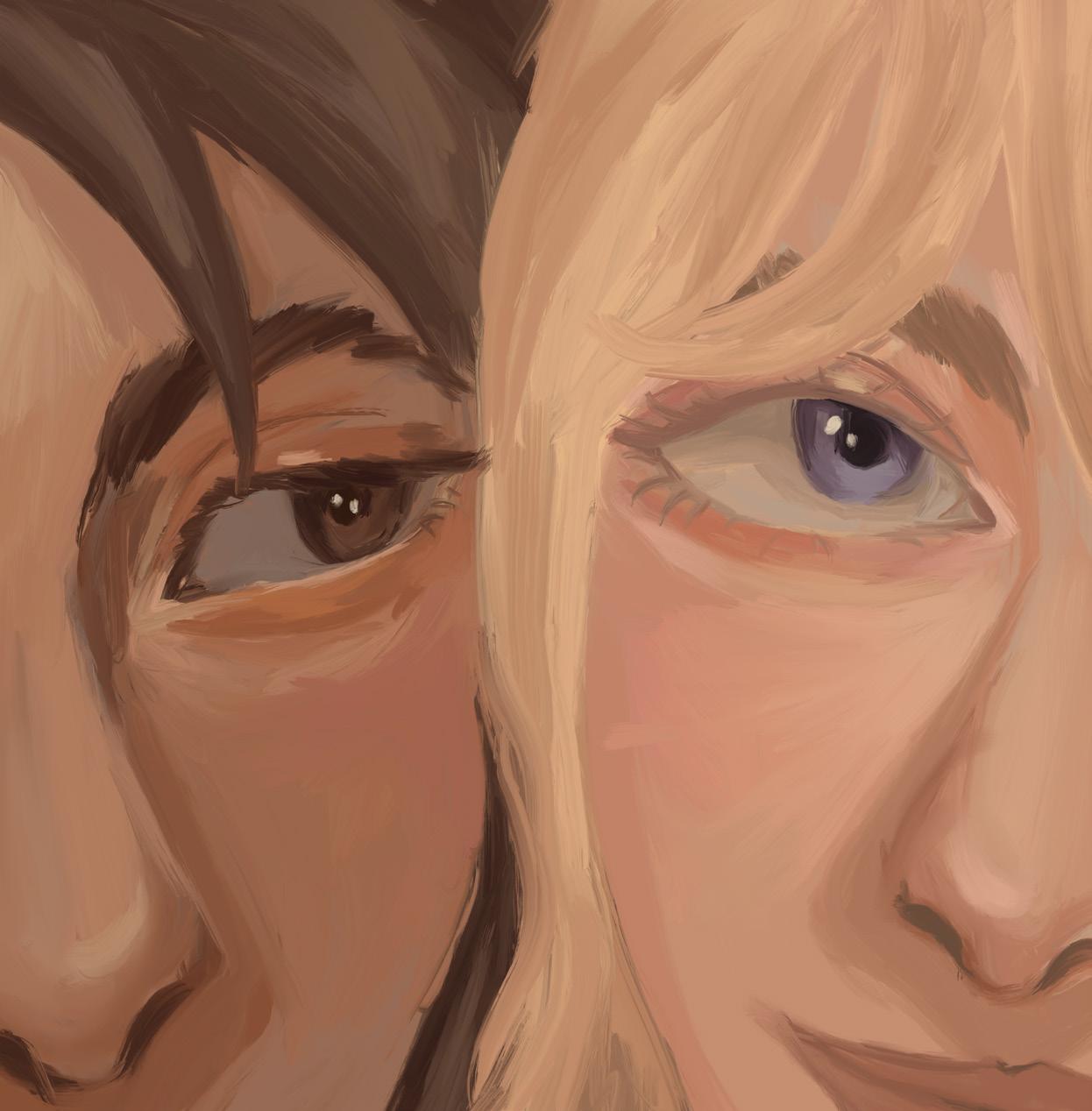


By Ruta Sepetys
I Must Betray You is a piece of historical fiction about the communist Romanian government in 1989. The main character, 17 year old Cristian Florescu, dreams of a world where he can finally be the writer he’s always dreamed of becoming; however, he gets blackmailed by the police and becomes a secret informer. Cristian must decide between informing on his friends or standing up and rebelling against the government.
This novel was honestly a lot better than I had expected. I’m not typically one to enjoy historical fiction, but I’ll make an exception for this. The story line was interesting and had me hooked the entire time. I enjoyed how Cristian was constantly faced with a difficult choice that

changed and evolved throughout the novel.
My favorite parts of this book were the little “mission reports” after every few chapters. They really had me curious about who the other secret informer was and how they kept writing these reports on Cristian. It added to the suspense of the novel, keeping the readers on their toes.
On a scale of one to ten, I would rate this book a solid eight. The novel overall was greatly written, but I just felt that the ending was a bit rushed. I was really enjoying the action packed scenes, but they were very short and quick. Other than that, it is a great novel.
I would highly recommend this novel to anyone, even if they’re not a fan of historical fiction. This is just a very well written novel with many historical accuracies.

By Mitch Albom
In my middle school days, I was never a voracious reader. I slowly started to lose my touch with literature because it was just plainly too boring. Staring at words on a piece of paper for hours on end was not my cup of tea in any way. Although I loved reading as a child, and even devoured Crenshaw, a 300-page fantasy-fiction novel by Katherine Applegate, in one sitting, reading lost its magic to me as I reached my teenage years. It simply demanded too much of my time and focus, which I wanted to put into something else more active, such as video games or just socializing with my friends. This, compounded with the fact that more and more books were being forced onto me in school, and my loss of imagination over time, made me resentful towards this hobby that I once used to love so dearly. There was, however, one book I read during this period of time that stands out in my memory: Mitch Albom’s The Five People You Meet in Heaven
Although it may seem insignificant, the method by which I acquired this book was quite random. One day during our conversation about literature, my old math tutor offered to bring his own books to next week’s class. Apparently, he felt that I was “suited” for the book, a description that I was not expecting in the slightest when I heard about these works of fiction that my tutor had in mind for me. His recommendation for a book, which was specifically catered to my personality during one of my life’s most dreary reading droughts, intrigued me. All there was to do was wait.
After receiving the book around a week later, I was confused by the somewhat bland and ambiguous cover. A beige background with mahogany borders and a small but noticeable ferris wheel awaited me on the cover as my tutor handed the books he recommended to each of the three students in his class. However, this lack of visual graphics on the cover piqued my interest even more, as it reflected the clean slate of my own journey of rediscovering the world of literature again.
The aptly named novel, The Five People You Meet in Heaven, begins with the death of Eddie, an 83 year-old amusement park mechanic, who passes away on his birthday while escorting a young girl from a malfunctioning ride that unfortunately kills him. After being transported to the dimension of heaven, Eddie meets the five most influential figures of his life on Earth, one person at a time. Immediately, Eddie’s first encounter is with someone he calls the “Blue Man,” who is essentially Eddie’s guide through the entire heavenly realm. After asking how he knows the Blue Man, Eddie is told that he, as a child, is the Blue Man’s cause of death. This is because, during Eddie’s childhood, he gets in the way of the Blue Man’s car as he is driving, causing him to get into a fatal accident. At this moment, Eddie realizes that his life is inherently connected to others. As the novel progresses, Eddie meets four other people who
reveal more lessons bound to his life: the importance of sacrifice, the power of forgiveness, the value of true love and letting go despite the loss of it, and the freedom that one could gain from atonement.
The themes of Eddie’s life truly resonated with me as I began to indulge myself in the progression of his journey in the afterlife. Eddie does not have a perfect life, and the narrator acknowledges his imperfections. This helped me reflect on my own life and compare it to Eddie’s. Although Eddie made many mistakes, he was able to live a relatively long time. Hopefully, I have the same amount of time allotted for myself; however, I also hope not to make such detrimental and fatal blunders in my life.
This novel is the ultimate depiction of the power of redemption that can take place in one’s life, and even after their life has ended. Much like how my math tutor thought that this book was “suited” for me, I would say that this book would appeal to readers who enjoy thought-provoking and emotionally impactful stories that explore themes of life, death, and interconnectedness of humans and human experiences. This novel will definitely break a reading drought for anyone who is thirsting for that one book to finally quench it!

I get into my parents’ car, and I still can’t believe that this trip is happening. I look over the packing checklist for the hundredth time, knowing that I already checked it
over and over again during the past few weeks. This is my first time living by myself for more than just a few days, which makes me nervous about everything. A decision to go to Yale University and study engineering for two weeks in the summer of 2023, which I was so excited about, suddenly feels like the worst decision I have ever made.
When I first signed up for this opportunity almost six months before, there were program options that took place at different locations. The range of the options was wide, so I spent a lot of time looking at different program schedules and overviews to choose the one that fit me the best.
Ultimately, I chose an engineering program at Yale because it involved hands-on activities that were not available in my high school. I wanted to make the most out of that summer, so I figured that trying out something new and seeing if I liked it would be the best way the chosen experience would shape my future. The most interesting part was living in a college dorm with new people. It was very scary to think that I would have to leave my parents, but it taught me so much about myself and what I would have to face in a few years when I graduate from high school.
The program ran from early in the morning to about eight or nine p.m. at night. Everyday, I woke up early and met my new friends in front of the school dining hall. Although it was not easy to wake up and get ready early after long days full of activities, morning breakfast time with my friends was ironically my favorite part of each day. As we talked about our lives that would embrace almost every state in the U.S. alongside other countries, such as Brazil, Mexico, and China, we got coffee, scrambled eggs, and pastries to fuel our days. Only after we were a bit more awake after a cup of coffee and chat, we headed to the courtyard to meet our TAs and do some engineering.
This program taught me so much about engineering itself because it
was very involved. The engineering team’s main project throughout our time at Yale was creating a Radio Controlled (RC) car and an RC sea perch by ourselves. This is one experience that I will never forget, even if I do not pursue engineering in the future. I have never done anything like this before, and neither did a lot of my friends and teammates there. We had to cooperate designing, setting the electrics, and building our projects. The TAs and the lecturers were mainly facilitating as they focused more on exposing us to the different types of engineering; this lack of guidance was what made this experience so memorable. A group with about ten people spent so much time together from planning the process and brainstorming the design to spray painting the RC car and cutting the pipes. I saw what a real engineer’s daily life would look like, which made me question if I truly wanted to pursue this path: I realized how in order to be successful at this job, one would need to have great skills at compromising, adapting to others’ point of view, and possessing mutual respect for other people’s expertise. In addition to the RC car and a sea perch, there were many activities such as building popsicle bridges and wind turbines in forms of competition between different TA groups, which I found very enjoyable. The teaching approach emphasizing minimal teacher involvement, where students were encouraged to independently figure out the steps, was very effective in creating learning as compared to traditional lectures that simply explained concepts.
As I look back on my summer journey at Yale, which put me through the challenges and successes of the engineering program, I can’t help but remember my anxious car ride towards this experience in July. Although I hesitated at first, I realized that this journey was not just about engineering concepts, it was an ultimate trip to discover my new perspective on this profession.

Guide
This summer, I'm consuming something unexpected: a Discord server. I'm not "consuming" it traditionally; it's just a place I've spent most of my time in these past few days. Why? It's my unlikely haven.
Although I've spent considerable time scrolling and texting on Discord, I also got obsessed with productivity, which may seem contrary to spending time on Discord. However, I soon discovered a server that intertwined these two opposites: Gohar's Guide.
I joined Gohar's Guide to get help with college admissions, which I'll work on in the next several years. As expected, the server had channels to assist high school students with various aspects of their college applications, such as SAT help and extracurricular channels. In these channels, students asked application questions, and college students or adults answered them, making the information credible and practical. After all, these adults have formerly gone through the college admissions process. Sometimes, high schoolers or graduated seniors also helped their younger peers, some who are middle schoolers. This questionand-answer process has guided me throughout my college application, from planning my extracurriculars to assisting with summer reviewing. However, Gohar's Guide wasn't only for academic help but also
a fun place to hang out and chill. Like many servers, it had a memes channel and an active general chat. Through the many jokes on these channels, I learned to laugh a little and chill out sometimes, just like my peers in these channels. It was a challenging pill to swallow, but it was one I needed, and I'm glad they (subconsciously) taught it to me. Additionally, the general chat served as a place where my peers and I could get to know one another and bond over high school memories, such as graduation.
Further, Gohar's Guide also became my solace in tough times. Their venting channel and supportive moderators helped me get up when things didn't go my way, like when my day was unproductive. The members and moderators continuously showed patience in handling my problems and giving advice in challenging high school situations.
Most of all, the server also introduced me to many successful people who helped me leverage myself into a better person. Being surrounded by successful high school entrepreneurs and researchers has pushed me to do better in every aspect of life. Their advice has made me more productive, compassionate, and a better communicator. Even better, they gave me many opportunities! Through this server, I got my first internship in a nonprofit and learned of many selective, prestigious programs.
My only suggestion for this server is to include a college essay editing channel. As essays arguably play a vital role in a student's admission, the server should put more emphasis on college essays and encourage students to seek feedback on these. A program or channel wherein students may receive essay feedback from graduated seniors or college students would be a great addition to the server.
Overall, Gohar's Guide is the best place to hang out online after a long day. It's filled with kind users, supportive (but firm!) moderators, and a community built on success. If you're a rising freshman, I
recommend joining this server over the summer, as it will help tons with your college admissions and high school journey.
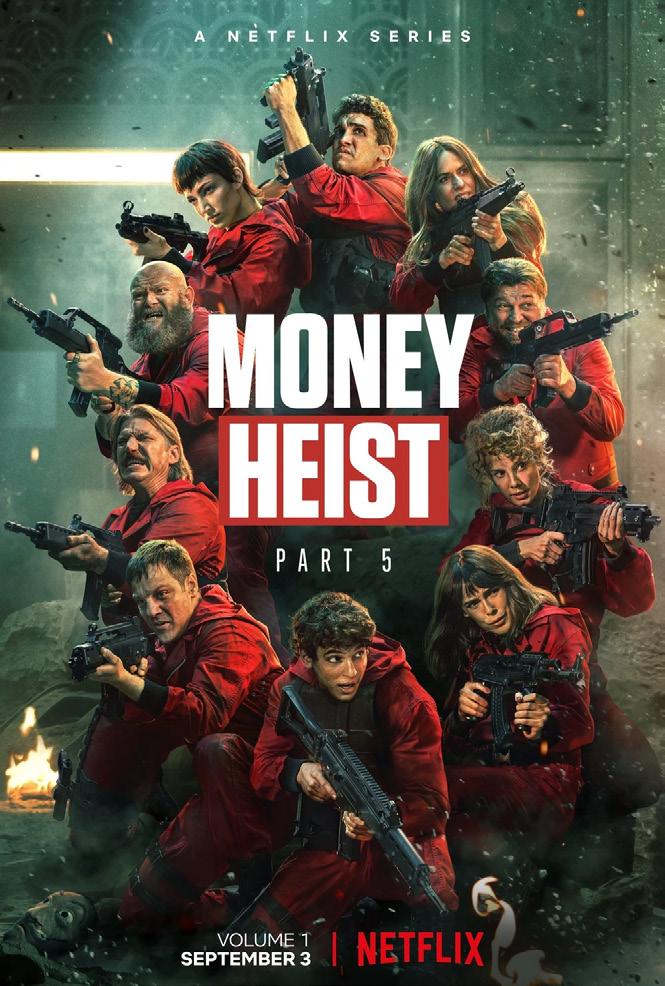
Red jumpsuits. Salvador Dalí masks. For five glorious seasons, Netflix's "Money Heist" struck us with its bold visuals, dynamic characters, and incomparably intense plot. The show's titular heist reached new levels of tension in its final season, which arrived on Netflix on December 3rd, 2021.
As the war between the gang and the police draws to a close, and the Professor enters the site of his grand plan for the first time, the story is far from its conclusion. At this point in the finale, Tamayo, head of the police investigation, is not ready to let the gang go until he locates the stolen gold, which, unbeknownst to him, is a fact that even the Professor is oblivious to, as it was
stolen from him by his nephew shortly after having been extracted.
Alicia Sierra, police negotiator turned ally to the Professor, is conducting a mad search for the gold outside of the bank. The gang's last hope lies on her shoulders. Alicia's beginnings as Rio's torturer set her up to be despised. However, as she uncovers the corruption of her police force, she is forced to work with the Professor if she wishes to have any future for herself and her newborn daughter. The show's finale allows Alicia to truly shine and provides its audience with one of the most satisfying character arcs to ever cross our screens.
The emotional hit of believing that every one of our beloved characters has died is the most impactful moment of the show. To see the remaining members of the gang come out safely, and under the protection of those fighting to shut them down, was a beautifully executed moment and conclusion to the show's legacy.

1.
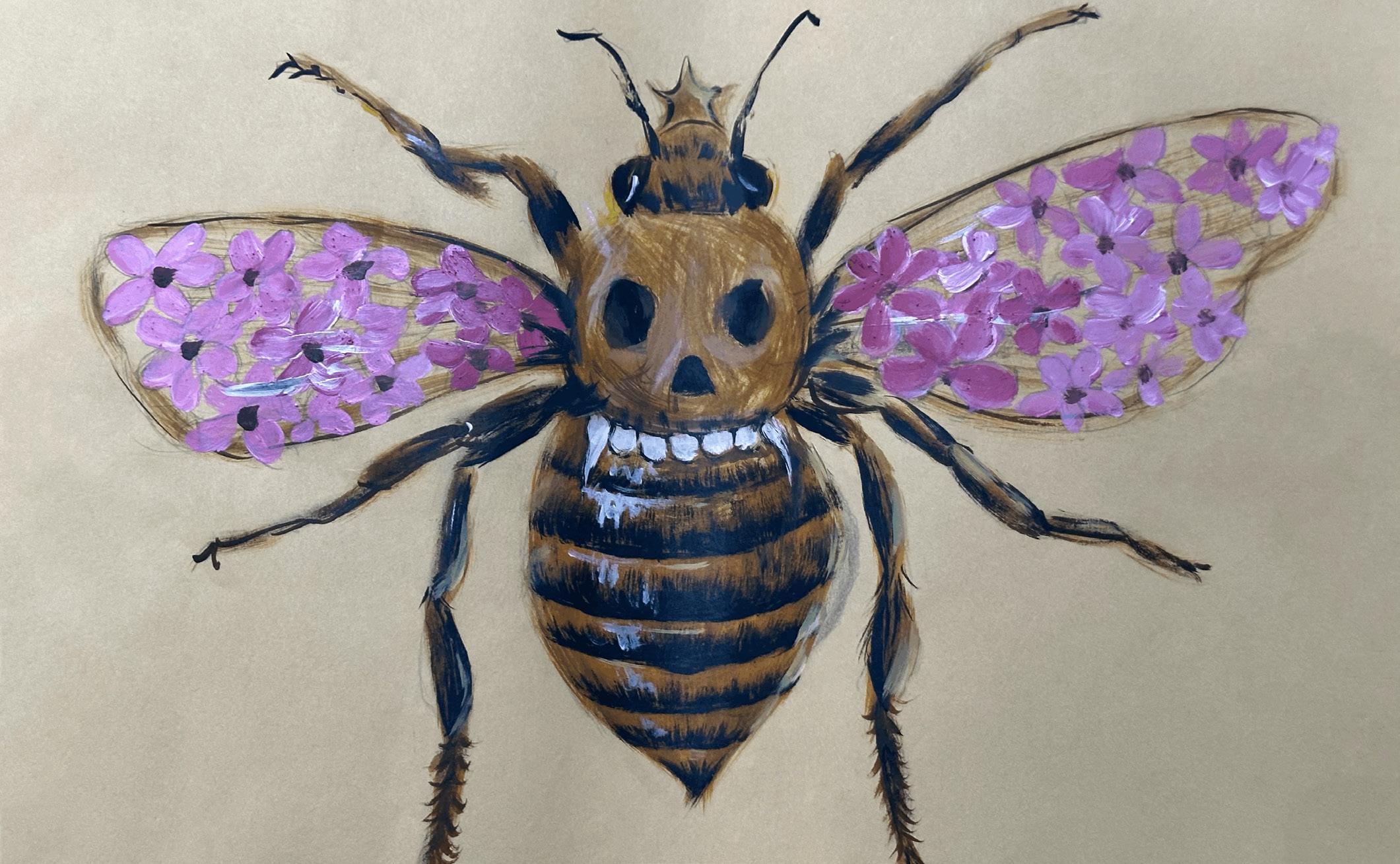

Titan Sanchez, 6
Savannah Lets, 9
Michelle Meng, 10
Jon Cekodhima, 18
Anonymous, 20
Ipsi Karnam, 22
STEM
Anonymous, 29
Mya Elmagraby, 31
Mehrin Hirawala, 32
Anonymous, 34
Parthiv Saravanan, 37
Contest Results
Steven Wang, 13
Ruohan Huang, 14
Isis Palmer, 15
Angela Fang, 16
Emma Kutz, 16
Evalyn Chen, 16
Michelle Meng, 17
Vasila Egamova, 17
Runxin Li, 17
Jason Lu, 17
Niharika Patel, 24
Robert Davis, 25
Angelina Agostini, 25
Tamanna Hamid, 25
Marian De Silva, 26
Lala Wu, 26
Madison Cossaboom, 26
Madilyn Charles, 27
Jana Bonkova, 27
Alice Ding, 27
Leyla Unerli, 40
Aiden Ahn, 41
Jeongyoon Chun, 41
Shekina Oh, 42
Polina Perin, 43
Art Gallery
Eunseo Kim, Front Cover
Mina Sun, 6
Shiqi Bian, 8
Rana Roosevelt, 10
Tianyang Xu, 18
Alisa Olesova, 20
Cassandra Nguyen, 22
Khushi Mahajan, 29
Rana Roosevelt, 30
Inaas Asad, 33
Jonathan Lee, 34
Meghan Basi, 36
Rose Pan, 39
Shanvi K, 39
Oscar Vit, 39
Yue Pan, 42
Yuanqi Gao, 44
Mikaela Carreon, 44
Eunseo Kim, Back Cover
Managing Editor: Kylie Andrews
